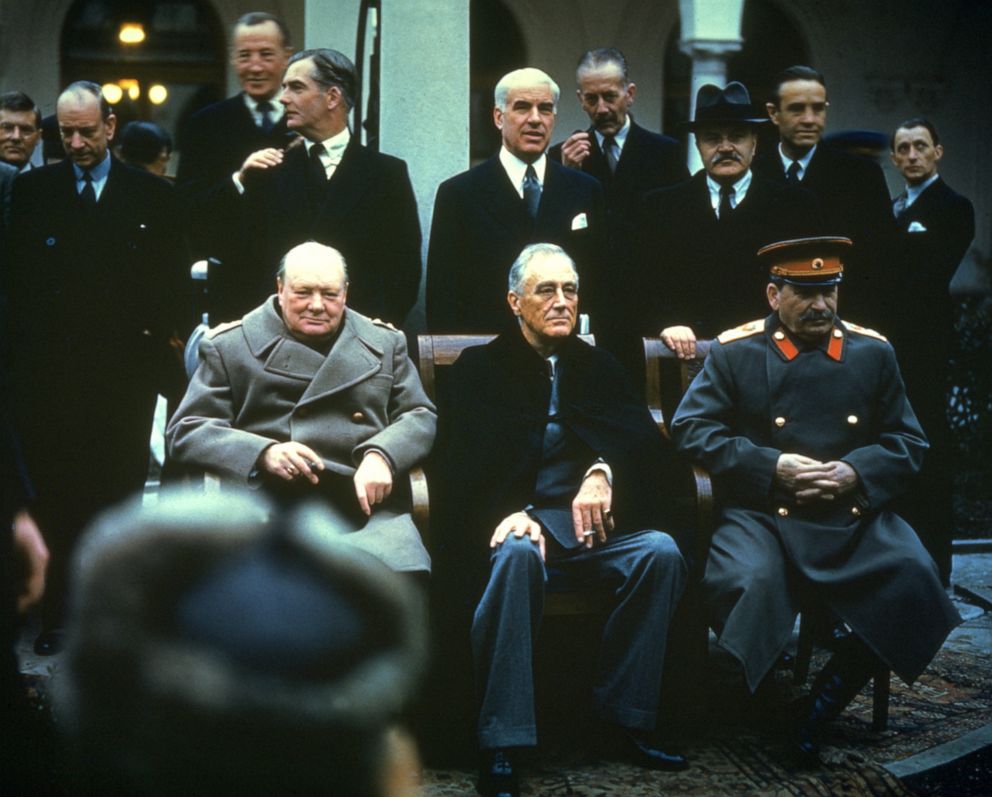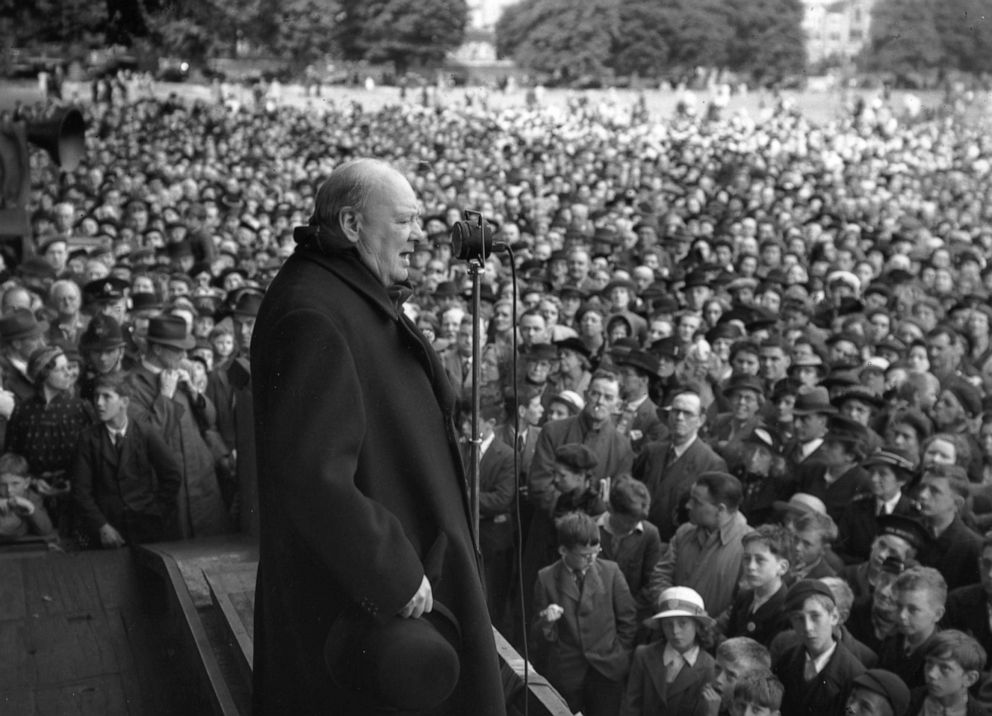Trump defends downplaying virus by invoking Churchill but gets the history wrong
He ignored Churchill's frankness even as the prime minister encouraged resolve.
President Donald Trump has taken to comparing himself to legendary British Prime Minister Winston Churchill to defend why he intentionally minimized the threat of the coronavirus in public earlier this year even as he privately acknowledged that the danger was grave.
“He always spoke with calmness. He said we have to show calmness,” Trump said, likening his attempts to play down the virus to Churchill’s leadership amid the Nazis’ sustained bombing "blitz" against London during World War II.
But the president’s dubious comparison mischaracterized his blunt frankness about the dire situation with the British people, even as Churchill encouraged resolve.
Historian Jon Meacham, who authored the book “Franklin and Winston” about the friendship between the two wartime leaders, countered the president’s assertion by offering up a quote that more accurately embodied Churchill’s tone at the time.
“The British people can face any misfortune w/ fortitude & buoyancy as long as they are convinced that those in charge of their affairs are not deceiving them, or are not dwelling in a fool’s paradise,” Meacham quoted Churchill as saying.

The president made another problematic comparison in evoking the British slogan “Keep Calm and Carry On” in trying to justify his claim to journalist Bob Woodward that he downplayed the pandemic so as not "create panic."
“As the British government advised the British people in the face of World War II, ‘Keep calm and Carry On. That's what I did,” Trump said Thursday.
But the reality is that the British government never actually used the slogan.
While the ‘Keep Calm’ design was created 1939 as part of a series of prospective posters in the event of war, the government ultimately never issued it.
It wasn’t until the turn of the 21st century, when a dusty copy of the prototype poster was discovered that the slogan moved into the wider public consciousness and eventually gained the ubiquitous status it enjoys today on tee-shirts and coffee mugs.

The president’s attempt to explain his approach to downplaying the virus, which has now claimed nearly 200 thousand American lives, came as he faces fallout from comments he made to renowned to Woodward for his forthcoming book, “Rage,” about the Trump presidency.
“This whack job that wrote the book, he said, well, Trump knew a little bit. They wanted me to come out and scream, people are dying, we’re dying. No, no. We did it just the right way,” Trump told an audience of thousands who packed shoulder-to-shoulder into an airplane hangar in Freeland, Michigan, to hear the president Thursday night. Many in the audience were not wearing masks.
Trump privately acknowledged to Woodward on Feb. 7, in a recorded interview, that the coronavirus was “deadly stuff” and “more deadly than even your strenuous flus,” even as he continued to publicly tell the American people that the virus was “like the flu” and “very much under control.”
It’s not the first time the White House has tried to compare the president to Churchill. Back in June, White House press secretary Kayleigh McEnany compared the president’s controversial photo opportunity in front of St. John’s Episcopal Church to Churchill surveying bombing damage in World War II.
“Through all of time, we have seen presidents and leaders across the world who have had leadership moments and very powerful symbols that were important for a nation to see at any given time to show a message of resilience and determination,” McEnany said. "Like Churchill, we saw him inspecting the bombing damage. It sent a powerful message of leadership to the British people.”
But in contrast to Churchill’s inspection of bombing damage on the streets of London amid war -- where he put himself at great personal risk -- Trump’s walk across Lafayette Square to stand in front of a church that had been partially burned amid protests followed the forcible removal by law enforcement of mostly peaceful protesters.
And Churchill wasn't the only famous Second World War leader Trump compared himself to Thursday to make his case.
"The only thing we have to fear is -- fear itself," he said, quoting one of America's most highly-regarded wartime presidents -- Franklin Delano Roosevelt.




